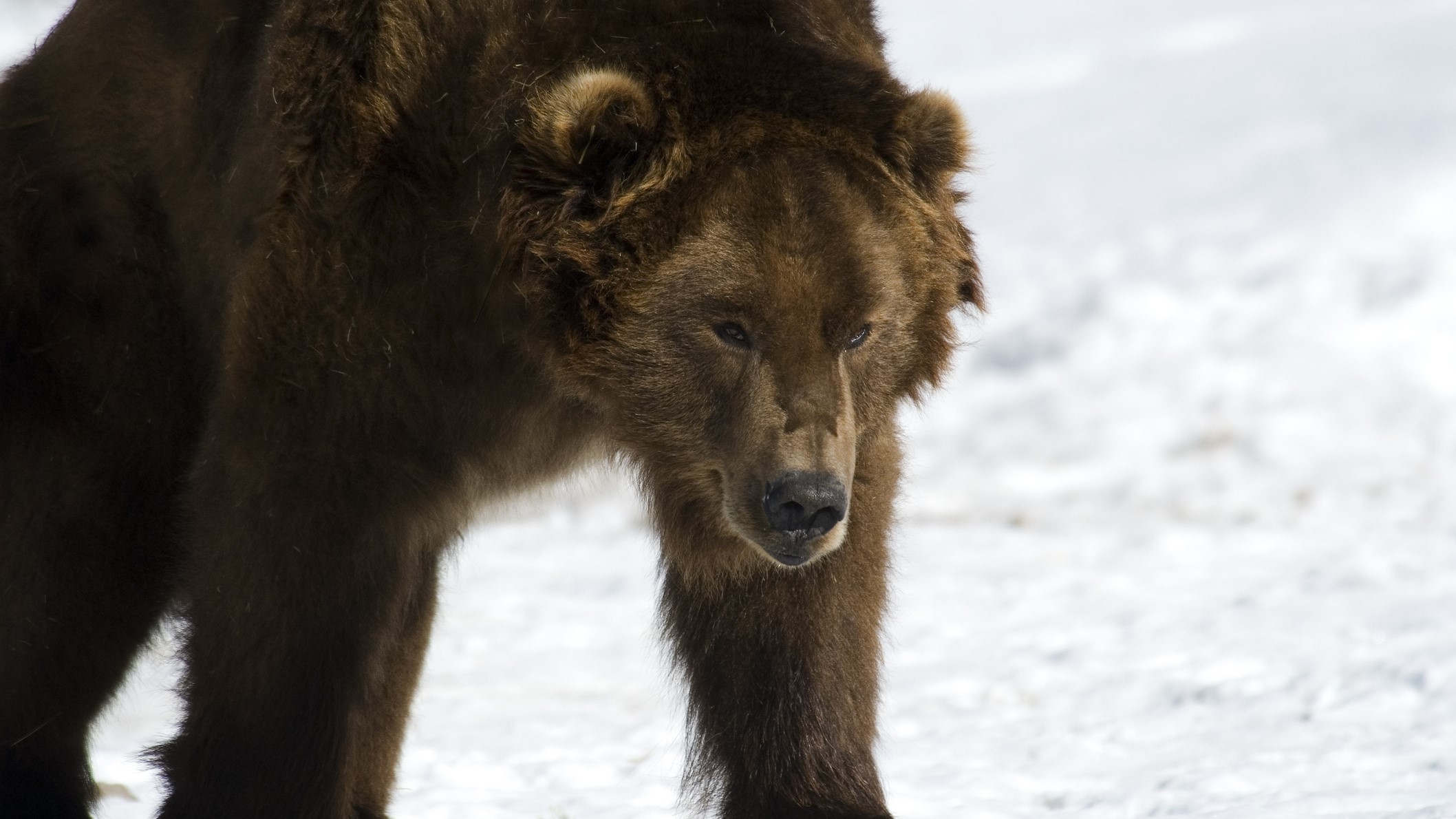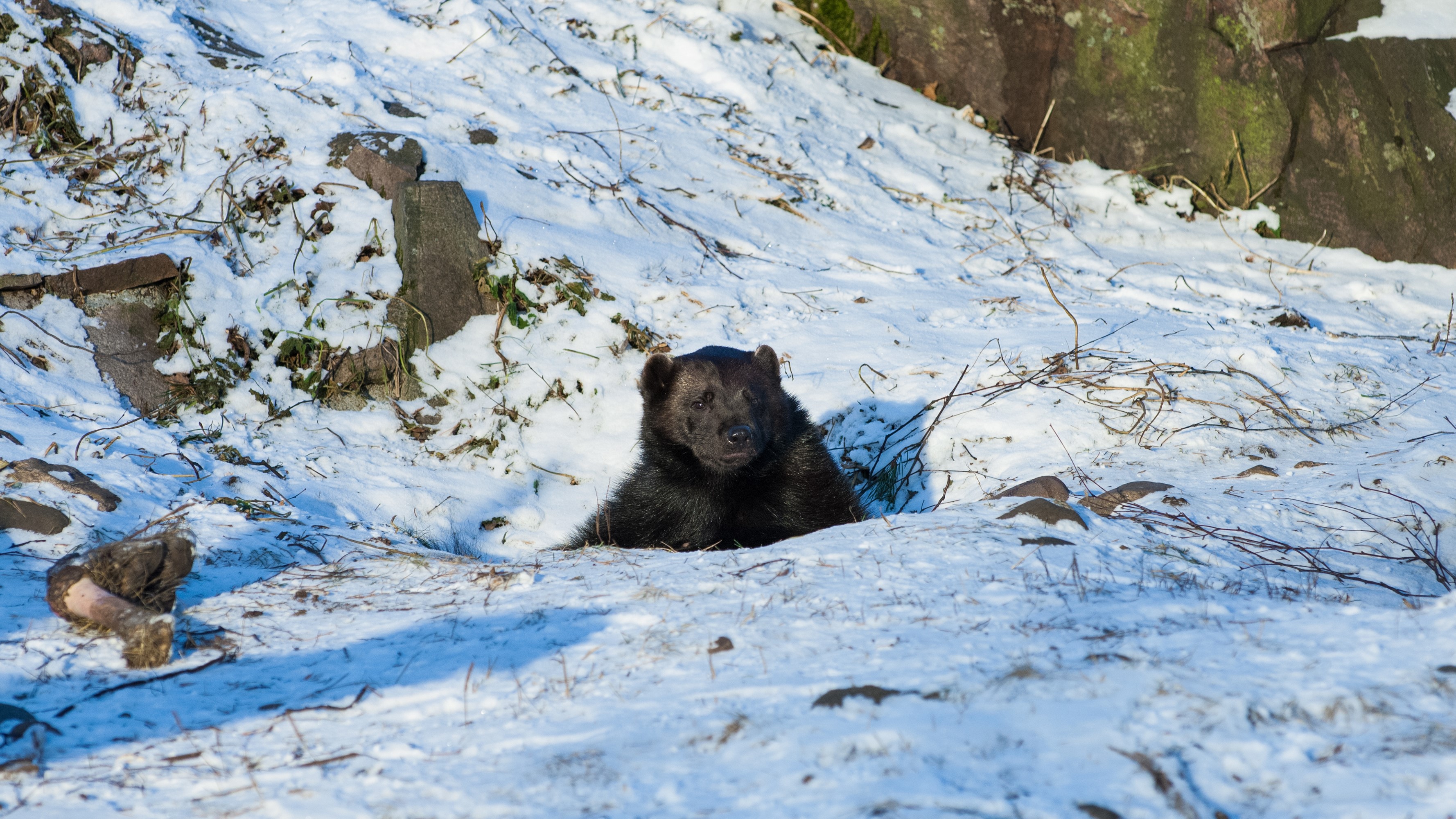
Bears in Siberia are wandering around "half-asleep" following abnormally high temperatures this fall, according to the Department for the Protection of Wildlife of the Amur Region.
The bears are ready to hibernate, having accumulated the fat reserves needed to sleep through the winter, but warm temperatures in November have kept them up past their bedtime, the government department said in a translated Telegram post on Nov. 21.
"In some areas, half-asleep bears still walk around the dens," representatives wrote in the post. Bears were spotted traipsing around in a daze a month past the time they usually enter hibernation — toward the end of October, according to the post.
The sleepless bears were mainly males, while females with cubs took to their dens "strictly on schedule," the post said.
Bears normally spend winter asleep in dens, emerging in the spring when food becomes available again. Unlike other hibernating animals, bears decide for themselves when to begin their long seasonal sleep based on a number of cues, including food supply and temperature. Research has linked warmer weather and shorter winters to a reduction in the time bears spend hibernating, with bears leaving their dens 3.5 days earlier with every rise in temperature of 1.8 degrees Fahrenheit (1 degree Celsius).
Related: Bear linked to multiple attacks in Japan found dead alongside its final victim

This fall, the Amur region, which shares a border with China in the Russian Far East, experienced abnormally high and record-breaking temperatures in October and November, The Moscow Times reported. And this could be delaying the bears' hibernation.
Soggy dens could also be to blame, Oivind Toien, a zoophysiologist and research assistant professor at the Institute of Arctic Biology at the University of Alaska Fairbanks, told Live Science in an email. "Temperatures above freezing in wet snowy conditions could cause melt-water to enter dens [and] that could make it uncomfortable for bears to stay in," he said.
Hibernation timing problems appear to impact males more than females and cubs.
"The denning period in females with cubs serves the additional purpose to protect the cubs," Toien said. Bear cubs are more susceptible to frigid temperatures than adults due to their smaller size, as their bodies store less energy and lose heat more quickly, he said.
Cubs also have a higher base metabolism per unit of body mass than adults during both the summer and hibernation months, "so smaller bears might have to be extra careful in not spending extra energy on activity during this transition period into hibernation," Toien said.
Large adult bears, however, can maintain daytime activity during the early winter months by elevating their metabolism when they are on the move, then slowing it down again when they are resting, Toien said. Bears that are wandering around "half-asleep" may have already triggered the physiological transition to a hibernation state, and are thus going about their business with a suppressed metabolism, he added.
Bears in Alaska may also be losing sleep due to warm temperatures, Toien said. "Bears walking around in winter is well known for instance from coastal areas of Alaska," he said. "Both the size of the bears and the mild climate in those coastal areas and continued availability of some food sources might play a role here."
Sleepless bears are especially common in urban areas, where trash cans offer plentiful and accessible food throughout the winter, Toien said. Unlike the bears in the Amur region, those that habitually scavenge on human leftovers don't typically build up fat reserves in preparation for hibernation, he added.







